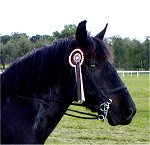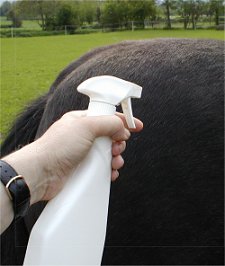 |
 |
|
|
Return to Native Ponies Online Home Page
|
This new regulation is part of the Biocidal Products Directive (1998), which contains a long list of substances which have been banned only because no one has bothered to prove they are harmless. While it is well known that some horses will occasionally have an allergic reaction to citronella, which is classed as a "natural chemical", this problem is no worse than with any other ingredient. It has been reported that 90% of "natural" fly repellents in the UK currently contain citronella. Manufacturers of these products could apply to have citronella exempted from the directive by submitting evidence of its safety and efficacy, but this could be costly. Developing an alternative formula which does not use citronella may be the cheaper! Indeed many firms already sell products which contain a citronella-free formula so this extra cost cannot be justified. These alternative products usually containing synthetic chemicals and many manufacturers are already working on other products to fill the impending hole in their natural ranges. Lavender and eucalyptus have also been banned in commercially produced products, as has tea tree oil, which, although on the EU "guilty" list, is currently under review and may be exempted.
|
||
|
|
(c) Native Ponies Online 2005
 On
September 1st 2006 a new EU ruling came in to force which banned
the use of citronella in commercial fly sprays. However horse
and pony owners who make their own spray need not worry as this
legislation only applies to insecticides produced for sale. What
is worrying is that this makes a mockery of the new ruling as
home made sprays are likely to contain far higher concentrations
of citronella than the shop bought versions.
On
September 1st 2006 a new EU ruling came in to force which banned
the use of citronella in commercial fly sprays. However horse
and pony owners who make their own spray need not worry as this
legislation only applies to insecticides produced for sale. What
is worrying is that this makes a mockery of the new ruling as
home made sprays are likely to contain far higher concentrations
of citronella than the shop bought versions.